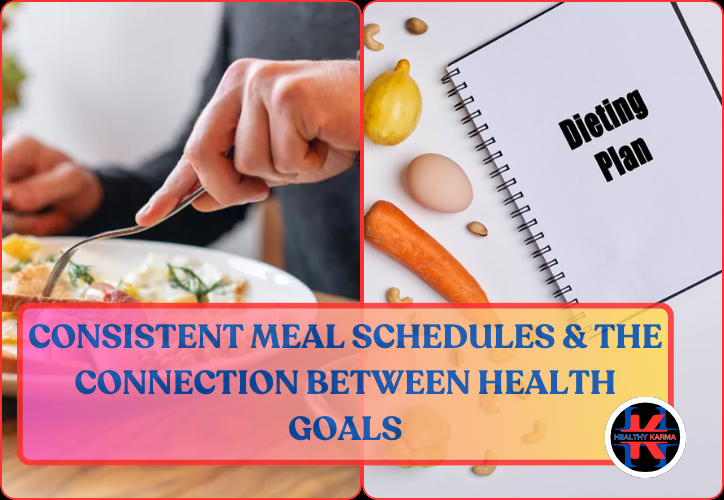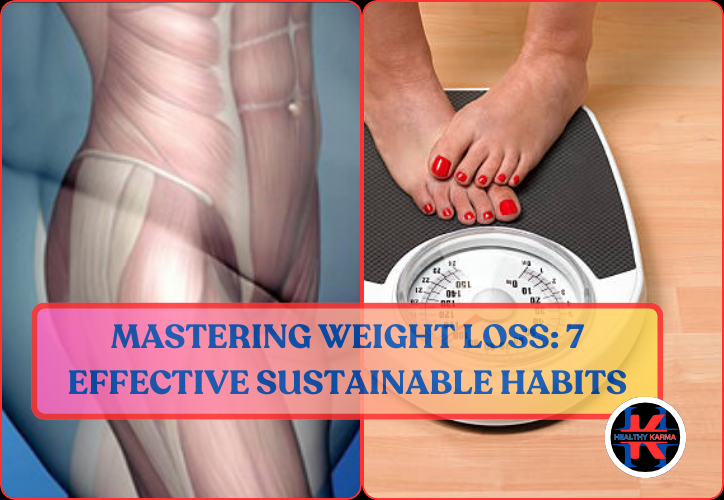

Transform Your Body: WEIGHT LOSS SUCCESS FOR BEGINNERS
Most individuals, as part of their habits, tend to take things for granted, especially their health. As an individual, upon receiving my type 2 diabetes diagnosis, the doctors foresaw just one dire consequence for my life: failure to manage my weight loss success.
At the young age of 50, weighing at over 220 pounds, I would die many, many years early if I did not start losing weight right away. Therefore, I had to make a choice. Prioritize my health or continue to suffer the physical pain of the insulin needles 2-3 times during the day that I needed to control my sugar levels.
Besides, with frequent visits to the doctor and the financial pain of paying for the medicines and the doctor’s charges, was an additional burden on my finances. I had to make a choice whether to suffer the pain or choose a healthy lifestyle that ensures weight loss success and is sustainable over time.
Starting a weight loss program is a big step in the right direction for overall health and wellbeing. It’s a path where success demands perseverance, commitment, and the appropriate tactics. This post is dedicated to those newcomers who are ready to get started on their weight loss journey but are not sure where to start.
setting off in the right direction is the key to weight loss success
For any journey, including the weight loss journey, having reasonable goals is essential to losing weight successfully. Here’s why it matters and some tips for doing it well:
- By establishing reasonable and realistic objectives as far as your weight is concerned, you may lay out a detailed plan for your weight loss journey.
- Setting realistic expectations about your body provides attainable benchmarks to strive toward, which keeps you motivated and focused on the objective. The clearer the objective, the faster and more sustainable the results.
- Unrealistic high expectations, such as those proposed by fad diets and the expensive gym plans are the major cause of dissatisfaction and disappointment, which are a part of the weight loss journey as the body often encounters weight loss plateaus over a period of time.
Being overweight for much of my life, a mother to two teens, at the age of 50, I suddenly realized that I needed to step up my weight loss efforts with a quick wake up call. It would take a lot of work and perseverance to ensure weight loss sucess, I learned a few quick hacks along the way that allowed me to drop 80 pounds in less than a year. Regardless of your lifestyle or eating preference, these long-lasting weight loss strategies are beneficial for everyone.
what you put into your body is what you get: the importance of nutrition in the body
Nutrition plays a pivotal role in achieving successful weight loss. Though all bodies require the right amount of nutrition in the form food, the nutritional requirement of every human body is different.
Here’s why it’s crucial and some practical tips for prioritizing nutrition:
- The right nutrition forms the foundation of a healthy lifestyle and is the key to achieving sustainable weight loss. Therefore, to understand the nutritional requirements of an individual’s body type, it is important to understand your body type.
- The quality and the quantity of the food you consume directly impacts your body’s energy levels, metabolism, and overall well-being.
- Therefore, making the right food choices not only supports your body's ability to burn fat more efficiently, at the same time helps build muscle, and maintain a healthy weight, that is the cornerstone of a healthy lifestyle.
eat less yet eat more for ensuring weight loss success
Unlike most of the typical diet plans, that restrict your food choices, especially those high in processed sugars and carbs, the first and most fundamental thing I discovered after paying attention to my body’s needs was that I was more comfortable eating smaller, more frequent meals.
This not only helped me manage my insulin levels more effectively, at the same time, reduced the insulin spikes that I used to have where the craving for sugary foods increased. This was what was dragging on my weight and it never used to come down.
The scientific premise of weight loss is based on the concept of calories. The weight in the body is nothing but the difference between the calories that the body receives in the form of food and the calories that the body burns in the form of energy.
Most of the diet plans advise restricting the consumption of calories in the form of high calorie foods, especially those you have grown accustomed to eating. This limits food selection as some of the foods also contain other nutrients that are required for meeting the body’s energy needs.
Any deficit in the nutrients increases the chance that the body starts experiencing withdrawal symptoms. Therefore, eating the food you enjoy at the right time and in the right quantity makes a lot of difference to your weight loss success. For e.g. Limiting the consumption of carbs before 5 pm reduces the pressure on the digestive systems and helps in managing effective weight loss. Therefore, the logic is that you can have carbs during the lunch and snacking hours, but not at night as it disturbs the digestive process in the body. This is because the body takes more time to process and digest the carbs in the body.
what is the best time to eat?
Have a high-protein breakfast, ideally between 7 and 9 a.m., followed by a brief snack two to three hours later. This guarantees that your stomach will remain full until lunchtime. Have lunch between 1 and 3 p.m., and then sneak in a snack before dinner a few hours later.
Just be sure that the snacks you choose are generally nutritious. Personally, I keep a small bag of almonds and a few apples, bananas, or oranges in my lunchbox so I can have nutritious snacks all day long without worrying about gaining weight or lowering my blood sugar levels.
RELATED: YOU MAY ALSO LIKE

Consistent Meal Schedules & The Connection Between Health Goals

Gut Feelings On The Plate: The Science Of Emotional Eating
what are the best foods to eat for weight loss success?
As part of a healthy diet, give priority to whole, minimally processed foods such whole grains, fruits, vegetables, lean meats, and healthy fats. To make sure you’re getting a wide range of vitamins, minerals, and antioxidants, incorporate a variety of coloured fruits and vegetables into your meals. These coloured fruits and vegetables contain certain micronutrients that are required for the body.
The right combination of foods that promote overall muscle growth and repair include lean protein sources like chicken, turkey, fish, tofu, beans, and legumes. Eating the right types of foods in the right quantity by using smaller plates and paying attention to your body’s signals of hunger helps manage weight loss goals effectively and ensure weight loss success.
Using the body’s natural senses by observing how different meals make you feel, can help practice mindful eating. Reducing dependence on processed foods, sugar-filled drinks, refined carbs in the diet plan, and high-fat snacks that contain a lot of sodium and related ingredients, not only help lose weight, at the same time reduce the risk of contracting chronic diseases related to heart health and diabetes.
water water everywhere
One crucial weight reduction tip that most of us overlook as part of our lifestyle while following a traditional diet is drinking lots of water. I was opposed to the same as it seemed overly straightforward and juvenile.
It brought back memories of my early years, when I had to respond awkwardly to my mother’s questions as to why my water bottle wasn’t empty when I got home from school. Drinking water not only reduces hunger levels in the body but also improves your general mood.
Dumping the can of diet soda and replacing the same with a glass of natural lime water mixed with a little honey and ginger not only gave me a cleaner feeling of health that helped me lose weight. At the same time, it altered my digestive system to becoming more efficient in its functions.
For those who are in the habit of forgetting to pick up a glass every-time, one tip that I have mastered over time is to have a glass of water just before and after eating that keeps you feeling full for a couple of additional hours.
For once, try drinking a glass of water after having a handful of nuts or fresh popcorn and notice the difference it makes to your hunger levels after a couple of days. If you change your mind about drinking more water, it could be the single most effective weight loss tip for you.
slap the lazy butt every now and then
Burning calories in the body through physical activity is a fundamental component of a successful weight loss journey and maintaining overall health. Here’s why it’s essential and some suggestions for incorporating enjoyable forms of physical activity:
Incorporating a regular exercise schedule in the body not only burns calories but also helps with boosting metabolism, increasing muscle mass, and improving cardiovascular health as part of a healthy lifestyle.
Besides, regular physical activity not only manages physical health, but studies also show that physical activity in the body can enhance mental health, regulate moods, reduce stress levels in the body, and improve sleep quality in the body, as the muscles are activated through exercise, contributing to overall well-being.
Incorporating regular exercise into your routine can help you maintain weight loss, prevent weight regain, and reduce the risk of chronic diseases such as heart disease, diabetes, and certain cancers.
Experiment with different types of exercise to find activities that you enjoy and look forward to. Without having to go to the gym by force, walking is a terrific and affordable option to begin exercising as part of your weight loss plan.
You can burn fat and improve metabolism levels in the body by doing 20 minutes of vigorous brisk walking each day. Whether it’s before, after, or even during your lunch break, take a stroll. The benefit of those walks was not only that they improved my health, but they also gave me a chance to get to know my spouse better because we developed the practice of going for walks after dinner.
Make exercising fun rather than the boring gyms. Think about something that you enjoy like dancing, yoga, pilates, jogging, cycling, or even hiking. Did you know that studies show that something like gardening or watering plants burns over 200 calories per hour! What matters is keeping your body parts active. It is a common misconception that exercising is limited only to the gym.
You can make exercise a lasting and pleasurable part of your weight loss journey and overall health by scheduling physical activity into your daily routine without having to make any compromises in your lifestyle commitments. Always remember that consistency is essential, so engage in joyful activities and incorporate frequent activity into your daily routine.
from night to light: developing healthy sleeping habits
Sleep enough is an important but sometimes disregarded component of effective weight loss as part of lifestyle habits. Sleep deprivation in the body sets the hormone balance out of gear, increasing the levels of the hunger hormone called ghrelin and lowering levels of the hormone leptin that indicates the level of fullness in the body. This imbalance causes cravings for high-calorie foods and an increase in appetite, leading to irregular eating habits and developing a negative relationship with food.
Lack of sleep can affect insulin sensitivity, glucose metabolism, and the body’s capacity to metabolize carbs, which can increase the risk of type 2 diabetes and cause weight gain. Chronic sleep deprivation level in the body is linked to increased amounts of stress chemicals like cortisol, which encourage the storage of fat, especially around the abdomen and the hips, particularly in the case of women.
Strategies for improving sleep quality and duration:
- Examine your sleeping habits by creating a regular sleep plan that includes going to bed and waking up at the same time every day, including on the weekends. Establish a calming nighttime routine to let your body know when it's time to unwind. This could involve doing things like reading a book aloud, having a warm bath, using relaxation techniques, or enjoying soothing music. Sometimes even having sex right before bed can burn calories and exhaust the body.
- Maintaining a cold, calm, and dark bedroom will help you fall asleep. To encourage sound sleep, spend money on pillows, linen, and mattresses that are comfy. Before going to bed, try to avoid engaging in stimulating activities or using the blue screens that have taken over our life (such as computers, phones, and TVs), as these can disrupt your body's normal sleep-wake cycle.
- Steer clear of caffeine, nicotine, and eating heavy meals right before heading to bed because these might interfere with sleep cycles and make it more difficult to fall asleep. Include regular exercise in your daily routine to tire out the muscles before going to bed; however, steer clear of strenuous exercise too soon before bed since this might cause your body to become overstimulated and hinder your ability to fall asleep.
- It is possible to enhance your body's natural cycles, support weight loss attempts, and enhance your general health and well-being by making getting enough sleep a priority and developing healthy sleep habits. Recall that getting enough sleep is crucial to leading a healthy lifestyle and that it should take precedence over diet and exercise.
Sleep enough is an important but sometimes disregarded component of effective weight loss as part of lifestyle habits. Sleep deprivation in the body sets the hormone balance out of gear, increasing the levels of the hunger hormone called ghrelin and lowering levels of the hormone leptin that indicates the level of fullness in the body.
This imbalance causes cravings for high-calorie foods and an increase in appetite, leading to irregular eating habits and developing a negative relationship with food.
Lack of sleep can affect insulin sensitivity, glucose metabolism, and the body’s capacity to metabolize carbs, which can increase the risk of type 2 diabetes and cause weight gain. Chronic sleep deprivation level in the body is linked to increased amounts of stress chemicals like cortisol, which encourage the storage of fat, especially around the abdomen and the hips, particularly in the case of women.
patience + persistence the winning combination for ultimate weight loss
Patience and tenacity are qualities that are generally associated with long-term success when it comes to weight loss. Losing weight is a journey that comes with its own share of ups and downs, obstacles, and disappointments. It’s critical to understand that obstacles are a natural part of the journey rather than an indication of failure.
Respect yourself and acknowledge that change takes time. Recognize your success and express gratitude for each step you take forward, no matter how small it may seem.
Acknowledge that failures can teach you important lessons and point out places where you can develop and get better. Reevaluate your objectives, modify your tactics, and recommit to your path in the wake of setbacks.
Seek the company of encouraging friends, relatives, or a group of like-minded people who can provide perspective, accountability, and support when things become tough on your journey to losing weight.
conclusion
Losing weight sustainably takes time to accomplish. It takes time, perseverance, commitment, and steady work. Instead of going for drastic shortcuts, concentrate on creating small, long-lasting adjustments to your daily lifestyle habits that time in the beginning, but give automatic results in the long term.
Long-term success is more likely to result from gradual advancement than from abrupt, unsustainable adjustments to lifestyle that only cause more pain once the body stops making the adjustments.
Weight loss involves more than just lowering the scale. It is also about making healthy choices with both food and exercise and creating a healthy relationship with both and exercise in order to increase longevity.
Never forget that every action you do, no matter how tiny, puts you one step closer to your objectives. Remain optimistic, stay focused, and never undervalue the importance of perseverance and patience in reaching your goals.
FAQ's
A: During weight loss efforts, plateaus are a typical and common challenge that is faced by everyone and can be caused by a variety of factors, including changes in exercise levels in the body or metabolic adaption. You can break through a plateau by changing up your exercise routine, upping your physical activity, consuming fewer calories, or seeking individualized counsel from a healthcare provider.
A: Indeed, you can try to lose weight and yet enjoy your favourite foods. Enjoying your favourite foods in moderation might help you stick to your weight loss strategy over the long term and avoid feeling deprived and create a negative relationship with food. To assist your weight loss goals, choose nutrient dese foods and develop lifestyle habits such as mindful eating, and portion control at the same time enjoying your pleasures.
A: Depending on personal preferences and objectives, weighing oneself frequently during a weight loss journey is determined. Weekly or biweekly weigh-ins may be more manageable for some people, although daily weigh-ins are preferred by some for accountability. Pick a regular time and technique for self-weighing, and keep in mind that changes in weight are common and don’t necessarily indicate gain or loss of fat. However, take care not to be obsessed with the weighing habits as it can increase stress levels.
A: For the purpose of weight loss, both aerobic and strength exercise are helpful. Running, cycling, and swimming are examples of cardiovascular sports that help burn calories and strengthen the heart. Conversely, strength training enhances body composition, speeds up metabolism, and helps grow muscle mass. Your regimen can optimize weight reduction and general health advantages by combining cardio and strength training workouts.
A: Setting attainable goals, appreciating minor accomplishments, and concentrating on non-scale wins are all necessary for maintaining motivation when progress is sluggish. Track your development, acknowledge accomplishments, and remind yourself of the reasons you started your weight reduction journey. To stay focused and dedicated to your goals, surround yourself with encouraging friends, family, or a group of like-minded people. You can also look for motivating resources or success stories for inspiration.
related: you may also like

mastering weight loss: 7 effective sustainable habits

breaking free from weight loss plateaus

slimming down the vegetarian way

